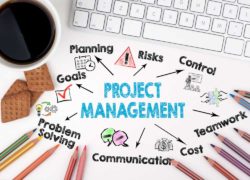Project Leadership & Management
 Overview
Overview
We offer a range of opportunities in project leadership and management. This ranges from specific consulting support in the development of projects, one and two day short project management workshops through to integrated action learning based project leadership and development.
The Project Management Development Program
Our Project Management Development Program (PMDP) incorporates the Diploma of Project Management (awarded through our RTO New England Management Development). The program assists in not only developing project leader effectiveness, it also provides an accredited, specialised project management qualification with a pathway into higher management education.
The Project Management Development Program (PMDP) is a twelve day program normally conducted as six, two day modules spread over 6-12 months. The focus of the course is the effective leadership, management and control of projects and it is aimed at anyone who manages projects or is destined to manage projects.
Learning approach
The program, as with our integrated leadership development program adopts an action learning, workplace orientated approach. Through action learning, participants learn with and from each other by working on real workplace project problems.
Program Structure and Outcomes
Participants attend a series of workshops covering the practice of project management. The workshops (broken into modules) are aligned with the competencies of the Diploma of Project Management and the PMI Project Management Body of Knowledge.
In between workshops, participants work in small study teams (virtual or otherwise), reflect on workshop experiences and progress a significant workplace project. Our experience has shown that the action learning approach provides the most effective way to integrate key learning back into the workplace.
Workshops are presented by highly experienced facilitators and encompass the accepted practices of experiential learning. Workshops include the following: Presentation of new ideas focusing on competency outcomes; interaction with participants through questioning and group activities; relevant case studies and simulations; presentations by participants, and; focused team activities designed to reinforce learning experiences.

